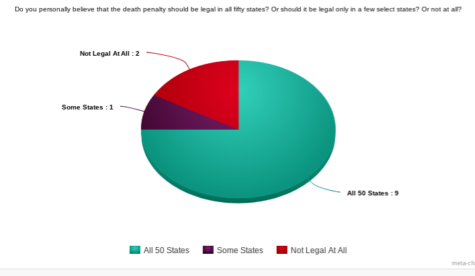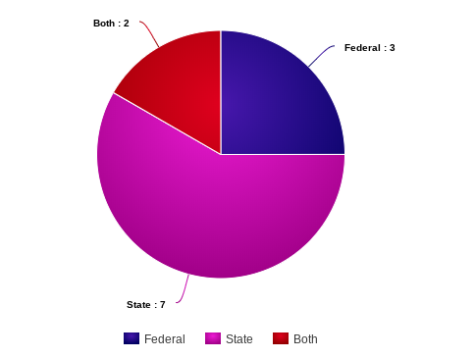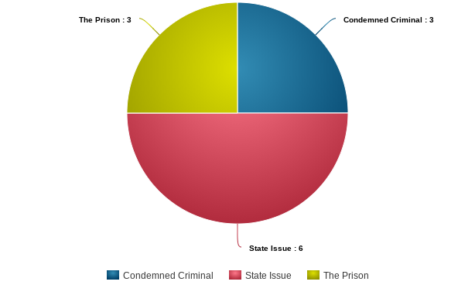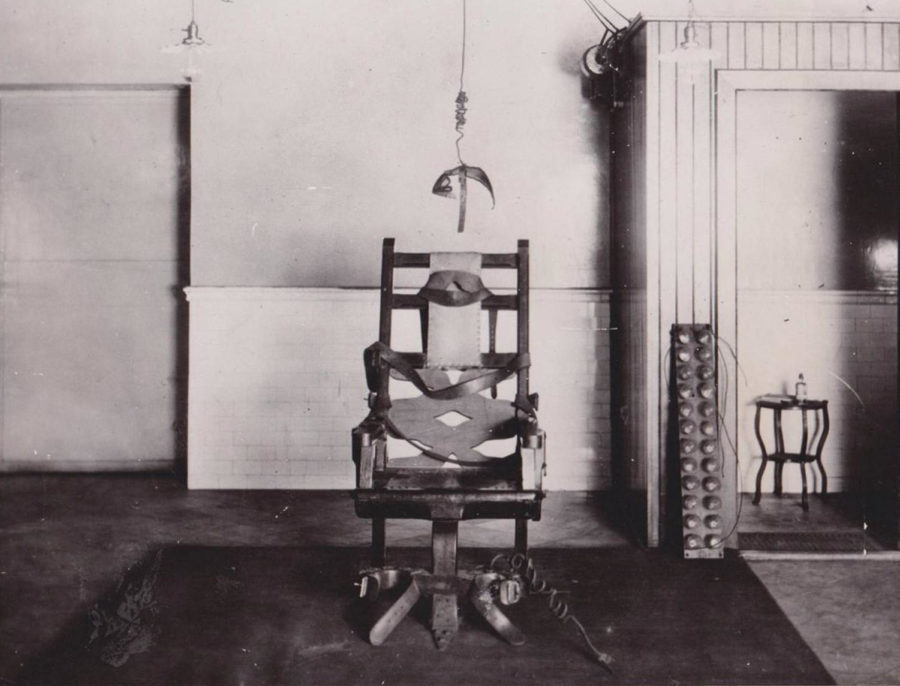The Death Penalty – Opinions from Naugatuck High School
On Thursday, February 01, 2018, a Dallas man by the name of John Battaglia was put to death after a 2002 case where Battaglia fatally shot his two daughters, six and nine years of age. During the case, when he was issued the death penalty, his lawyers claimed that he was mentally ill, sparking the controversy of ethicality of the death penalty.
The ethicality of the death penalty has always been questioned, As many aspects of the death penalty that can be deemed controversial.
These aspects can range from who chooses how someone on death row dies, if the state or federal government should take on cases related to the death penalty regardless if it’s a federal or state crime, or how severe of a crime, a crime must be to be issued the death penalty.
To determine how students feel about the different aspects of the death penalty, we asked twelve students from various grades at Naugatuck High School (grades ten to twelve.)
We asked the twelve students four different questions about the death penalty, these questions do not question if the death penalty is ethical or not, but about the current state of the death penalty.
The first thing we asked the students was if they believed that the death penalty should not be legal at all, only legal in a few states (as it is now), or in all states.

According to the students, seventy-five or ¾ of the students believe that the death penalty should be legal in all fifty states, only one person believed that it should be legal in only a select few states, and two students believed that it shouldn’t be legal at all.
It becomes clear that the overwhelming majority of the surveyed students believe that the death penalty should be legal in all states, speaking towards the student population and its views on the death penalty.
“I believe that [the death penalty] is a fundamental right, and should be carried in every state,” said one male student from grade eleven.
Currently, each state applies its own criminal law, and the federal government is constitutionally barred from requiring the services of the states in applied the federal criminal law. Currently nineteen states abolished the death penalty, and thirty-one states still have the death penalty, but there has only been twenty-three deaths from the death penalty in the year of 2017.
Afterwards we asked students if they believe that the death penalty should be at the discretion of the state or the federal government, regardless if the crime committed is a state or federal law.

According to the students, the death penalty should remain as it currently is, meaning that if it is a state crime, then the state should have jurisdiction to decide the death penalty, and if it is a federal crime it should be at the federal government’s jurisdiction to decide the death penalty.
“It’s such a drastic thing taking someone’s life, it should be taken to very official people,” said one male student, also from grade eleven.
“I think it should be the state because, people in that state are more likely to know that person, and their surroundings similar to the person that
We also asked students to what severity of a crime a person would commit to be issued the death penalty, in which, a majority of students claimed that only severe crimes such as mass murder, rape, terrorism etc. should warrant the death penalty.
“Only those who commit federal crimes should face the death penalty, unless they are a serial killer or a rapist, anything along the lines of that.” said one junior girl
We then asked students if they believed that the state, federal government, or the penitentiary (or whomever is in charge) gets to decide the method in which someone on the death penalty dies from, or should the person themselves, who commited the crime gets to decide.

From the responses, it becomes apparent that the students believe that the state should decide the method in which the person dies.
“I believe the federal state or government should have some sort of regulation over how a person is executed.” said one female senior.
Currently only six states allow the condemned criminal to choose the method, while the remaining twenty-five states choose for the condemned criminal.
As time progresses, the death penalty, whether it is the ethicality of it, or if should be legal nationwide, will continue to be a topic of discussion for many. The extents of the death penalty are also being discussed about it implications in relation to mental illness. No matter how the death penalty changes, in legislation or in practice, people will always have an opinion on it.

I am a senior at NHS. I want to be a microbiologist or a biomedical engineer. I am taking this class because I enjoy writing and researching real time...

I am a senior. I will be attending the University of Tampa as a journalism major in the fall of 2018.

I am in 12th grade.
I would like to work in Forensic Science. I love watching the news, I watch it everyday. Plus, I love writing.









JayLynn • Mar 14, 2018 at 1:49 pm
I believe that the death penalty should be legal in all states however, I feel as though it is also the easy way out for major criminals because they get free rooming, food, books, and education just for committing a crime.